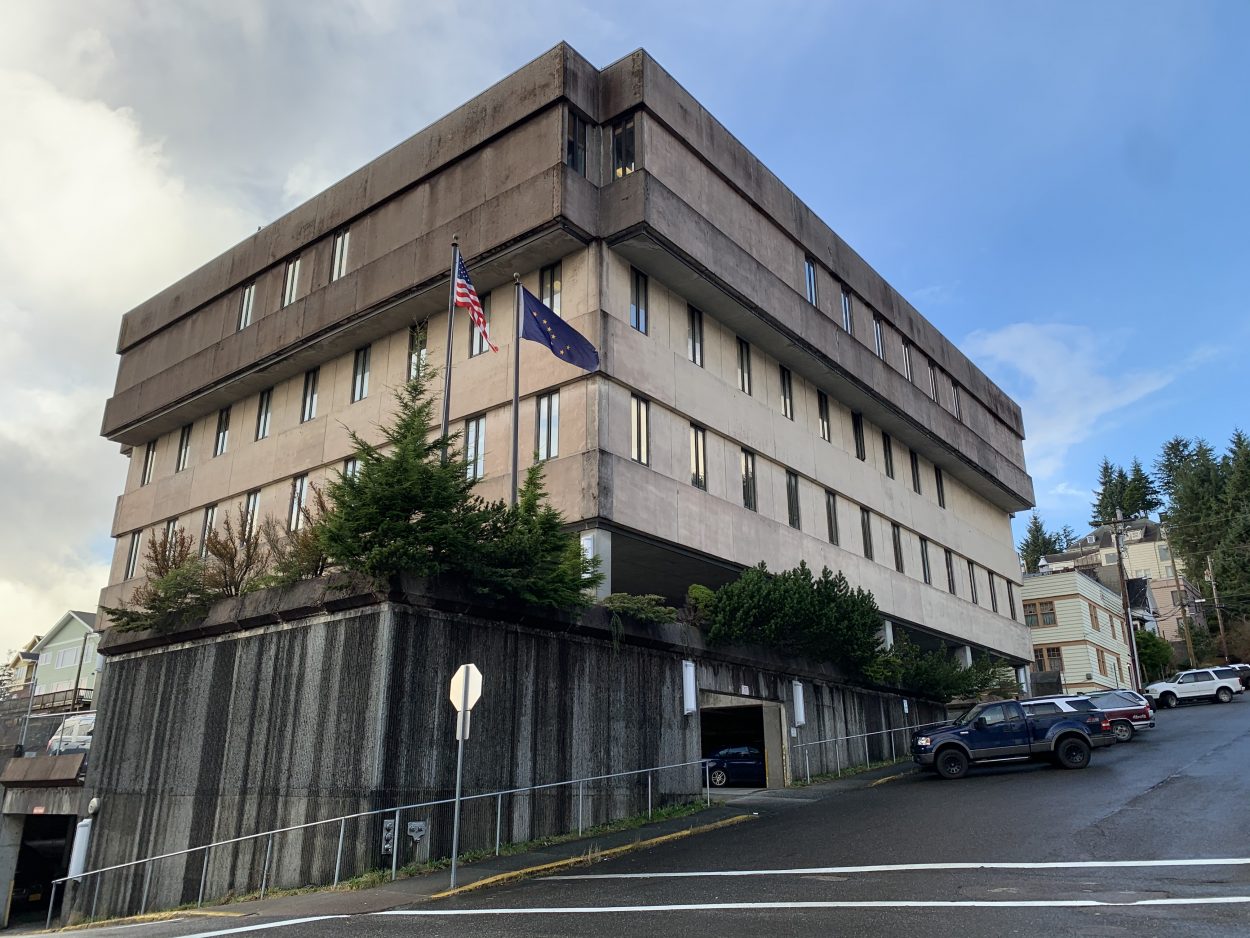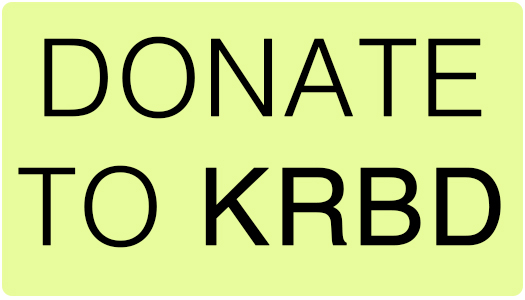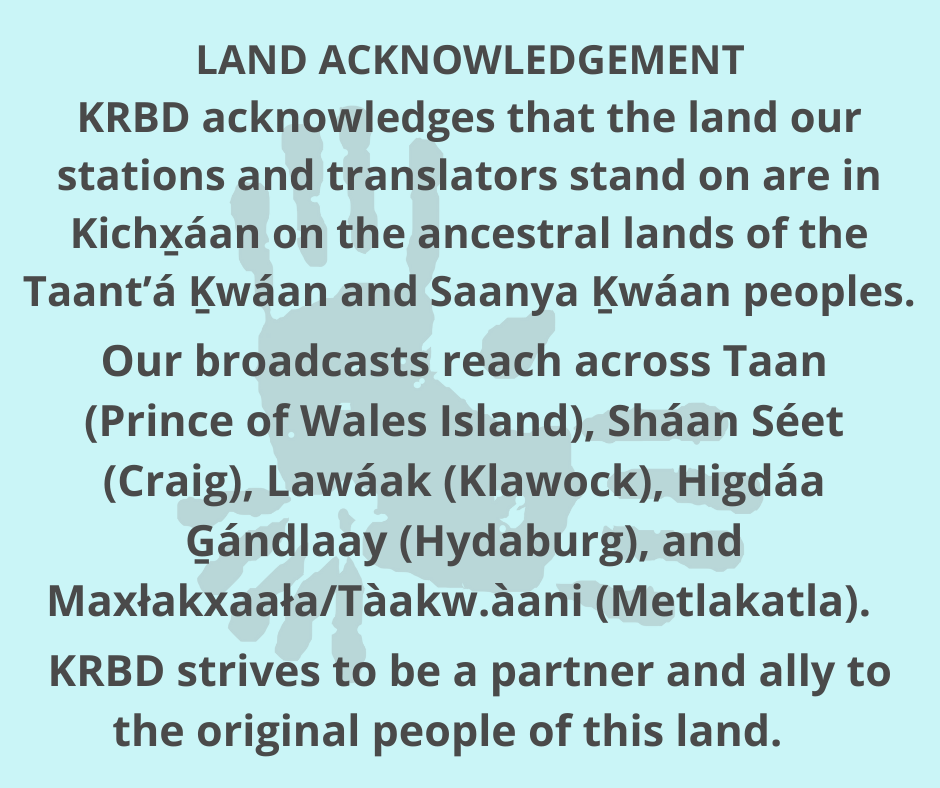
Ketchikan’s state courthouse stands at 415 Main Street on Dec. 8, 2020. (Eric Stone/KRBD)
There’s a changing of the guard on the top regional court for the southern panhandle. Both of the Ketchikan Superior Court’s longtime judges are hanging up their robes.
Judge William Carey retired last month after more than a decade hearing cases from Ketchikan, Wrangell, Petersburg and Prince of Wales Island. Judge Trevor Stephens, the other half of the Ketchikan Superior Court bench, is set to retire at the end of May.
Earlier this month, Gov. Mike Dunleavy chose Carey’s successor: Dan Doty. The 34-year-old former federal prosecutor is among the youngest people to be appointed as a Superior Court judge in Alaska’s history, according to the independent commission that nominates state judges.
Doty’s Alaska roots run deep. He moved to the state as a four-year-old when his father was stationed at Eielson Air Force Base south of Fairbanks. He returned to Alaska as a district attorney in Bethel and Dillingham after graduating from the William and Mary Law School in Virginia in 2013, along with a brief stint in private practice in Anchorage. He moved to Fairbanks about three years ago for his most recent job as an assistant U.S. attorney.
But, as he told KRBD, he’s always yearned to get back off the road system.
This transcript has been edited for length and clarity.
Dan Doty: My wife and I are not big city kind of people. Fairbanks is even a little bit bigger than the places that we feel most comfortable. For my whole career in Alaska, I’ve always heard people say how wonderful Ketchikan is. It reminded us of a lot of the things that we loved about living in Dillingham. It’s there by the ocean, (and) we actually are folks that kind of enjoy those rainy, misty mornings. After that visit, it became pretty clear that putting in for this position would be great. And that we’d really love being down there.
Eric Stone, KRBD: You have a wide diversity of experience, what made you want to take the next step and become a judge?
Doty: So I’ve always wanted to be a judge since the beginning of my career, and the main reason for that is that I want to do the most good that I can for the most people that I can. And you can do a lot of that as a prosecutor. It’s your obligation to help your whole community. But being a prosecutor, a lot of times, you’re only looking at what might be even the worst five minutes of someone’s life. Whereas if you’re a judge, you’re working on everything: you’re working on adoptions, child custody, you even do some marriages, you do some divorces, you do business disputes, personal injury, you really handle and decide those significant legal issues that are important in people’s lives — every aspect of people’s lives from the beginning to the end. And being able to have that role in a community, and to take on that responsibility, and to help people in that way, that’s why I wanted to be a judge.
***
While he’s spent most of his career as a prosecutor, Doty told KRBD he’s committed to treating all defendants fairly. He says that ethos has guided his career, even as a state’s attorney.
Doty: The best prosecutors are people who recognize that their job isn’t just to put people in jail — it’s to do the right thing. And with some people, that’s going to mean giving second chances. For me, I’ve always tried to strike that balance in my career. Going back to Bethel, I was our rehabilitative courts coordinator out there for a long time, I actually significantly expanded the membership in the Bethel therapeutic court, and worked on giving second chances to those people who really deserved them and just needed a little bit of extra help. Additionally, just in my personal experience, my oldest sister actually died of a drug overdose when I was in law school. I’ve understood kind of the role that addictions play in people’s lives and understood how important it really is to kind of see people for the whole person and understand that what might be a single bad moment in their life is not necessarily the thing that defines them as a whole person.
KRBD: I wanted to finish by asking, what do you want people to take away from this conversation? What do you want people to know about you as you become the next Superior Court judge?
Doty: The thing that I want folks to know, and I hope that it’ll come through in my experience as a judge, is that I’m committed to the community, and I’m committed to making sure that everyone feels like they were treated fairly. They might not come away happy with the outcome. There’s never a case where, you know, you’ve got two sides to a lawsuit or a case where everyone comes away feeling like they won. But I hope that no matter what happens, people always feel like I listened, like I understood and like I applied the law fairly to the case that was in front of me.








